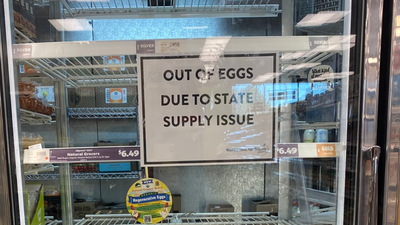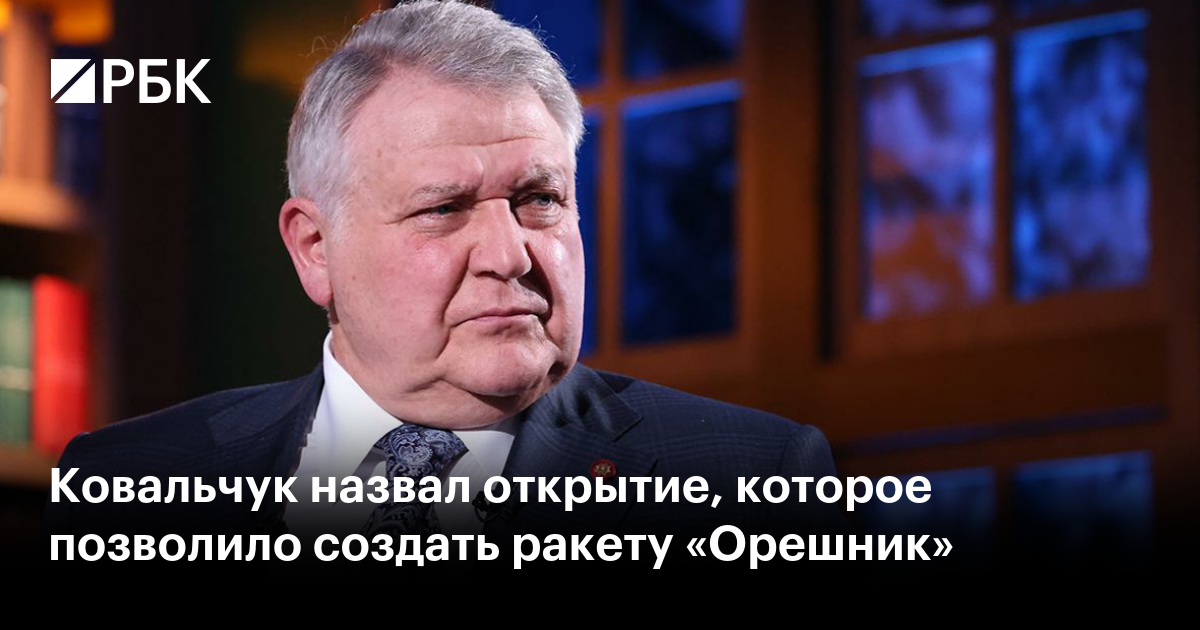Vanlok
deus ex machina
- Член од
- 30 мај 2009
- Мислења
- 26.297
- Поени од реакции
- 34.890
JEFFREY SACHS:
"It's very important to understand that World War II never ended with a treaty, and I think the United States was to blame.
The reason it never ended with a treaty is that the Soviet Union said, 'Germany killed 27 million of our people; we want Germany to be disarmed and neutral.'
Of course, Germany itself was divided into occupation zones at the end of the war in 1945.
The U.S. immediately came to the view, in the summer of 1945, that the next war would be with the Soviet Union.
Rather than making a peace agreement to end World War II, the U.S., along with the British and French occupation zones, merged, formed the Federal Republic of Germany, and rearmed Germany.
By the way, the fact is that they put a lot of former Nazis back in charge of leading armaments industries, and a few years later, Germany joined NATO.
This was, of course, both an affront and a threat for the Soviet Union.
NATO was never viewed as a defensive force.
The Soviet Union saw NATO as the next front in a continuing Western war against it.
There were periods of détente, for example with Nixon, and periods of tension, but there was never an end to World War II on the basis of a treaty.
When Mikhail Gorbachev said, 'I wanted to end the Cold War'—and be sure, he ended the Cold War—he ended it peacefully.
This needs to be remembered: it wasn't an American victory.
Mikhail Gorbachev said, 'I wanted the walls to come down.' Of course, Reagan wanted to do that peacefully together with Gorbachev, but it was Gorbachev's initiative.
I watched a lot of it firsthand, up close, in Central and Eastern Europe, as an economic advisor to the heads of governments involved in this.
Immediately, the question of German reunification arose.
In that context, there needed to be an agreement between the West and the Soviet Union for the legal end of the occupation of Germany.
German reunification was a legal event that was essentially the end of World War II—you needed the Soviet assent.
What did the United States and Germany say to the Soviet Union to get that assent? It was not ambiguous; it was not unclear.
They said, without any equivocation, 'We will have German reunification, and NATO will not move one inch eastward.'
Those were the words used by U.S. Secretary of State James Baker III directly to Mikhail Gorbachev on February 9, 1990.
Hans-Dietrich Genscher—on a tape you can listen to—said, 'When we say it won't move, we don't just mean within Germany; we mean anywhere to the east.'
It's so clear.
Of course, America cheats. Please understand this: America is a big power. It cheats. It tries to do what it can. It uses media and propaganda to get away with cheating—that's what big powers do, have no question.
A few years later, the United States claimed, 'Oh, we never promised that.' You can just read it in the documentation, which is available online in the National Security Archive of George Washington University.
So, in 1994, under Bill Clinton, the U.S. cheated.
They adopted a plan: NATO would expand eastward. And, by the way, not just eastward by 100 km or 300 km, but keep going east—all the way to Ukraine, all the way to Georgia, remember.
They wanted to go even beyond. I'm sure some crazy person in the United States said, 'Why not Kazakhstan? Why not Uzbekistan? Why not Armenia?'
Their idea in 1990—I know it—was, 'We won!'
Especially in December 1991, when the Soviet Union ended, the American 'strategists'—if you can call them that; it's a kind of euphemism because they are hardly good at strategy—said, 'We're alone. We're the most powerful country in the history of the world. We're more powerful than the Roman Empire. We're the world's sole superpower. We can do whatever we want.'
So that was the mindset, and cheating goes along with that mindset—the arrogance of power.
So, to make a long story short: yes, the United States started to expand.
Zbigniew Brzezinski, one of these strategists, explained very clearly in 1997, in his book The Grand Chessboard, why Russia would be unable to resist.
In a meticulously laid-out chapter, he asked the question: What if the U.S. pushes NATO? What if Europe keeps expanding eastward, crowds Russia, surrounds Russia—what can Russia do?
Brzezinski asked whether Russia could resist or if it would have to give in, and he concluded that Russia would have no choice.
He reached the conclusion, for example, that Russia would never form an alliance with China. He also concluded that Russia would never form an alliance with Iran.
You know, okay, theorists—this is playing games.
He compared the world to a chessboard.
By the way, the world is not a chessboard; it's not a poker game. It's the real lives of eight billion people.
American strategists are trained in game theory, which, by itself, in its name, gives everything away.
They treat the world as a game—bluff, raise, call—as if it's a poker match.
And you know what? They used other people's lives to do it.
They raised the stakes with Putin: 'We raise you.'
But whose lives were they betting on the table? The Ukrainian lives. Huh, not a good show."
"It's very important to understand that World War II never ended with a treaty, and I think the United States was to blame.
The reason it never ended with a treaty is that the Soviet Union said, 'Germany killed 27 million of our people; we want Germany to be disarmed and neutral.'
Of course, Germany itself was divided into occupation zones at the end of the war in 1945.
The U.S. immediately came to the view, in the summer of 1945, that the next war would be with the Soviet Union.
Rather than making a peace agreement to end World War II, the U.S., along with the British and French occupation zones, merged, formed the Federal Republic of Germany, and rearmed Germany.
By the way, the fact is that they put a lot of former Nazis back in charge of leading armaments industries, and a few years later, Germany joined NATO.
This was, of course, both an affront and a threat for the Soviet Union.
NATO was never viewed as a defensive force.
The Soviet Union saw NATO as the next front in a continuing Western war against it.
There were periods of détente, for example with Nixon, and periods of tension, but there was never an end to World War II on the basis of a treaty.
When Mikhail Gorbachev said, 'I wanted to end the Cold War'—and be sure, he ended the Cold War—he ended it peacefully.
This needs to be remembered: it wasn't an American victory.
Mikhail Gorbachev said, 'I wanted the walls to come down.' Of course, Reagan wanted to do that peacefully together with Gorbachev, but it was Gorbachev's initiative.
I watched a lot of it firsthand, up close, in Central and Eastern Europe, as an economic advisor to the heads of governments involved in this.
Immediately, the question of German reunification arose.
In that context, there needed to be an agreement between the West and the Soviet Union for the legal end of the occupation of Germany.
German reunification was a legal event that was essentially the end of World War II—you needed the Soviet assent.
What did the United States and Germany say to the Soviet Union to get that assent? It was not ambiguous; it was not unclear.
They said, without any equivocation, 'We will have German reunification, and NATO will not move one inch eastward.'
Those were the words used by U.S. Secretary of State James Baker III directly to Mikhail Gorbachev on February 9, 1990.
Hans-Dietrich Genscher—on a tape you can listen to—said, 'When we say it won't move, we don't just mean within Germany; we mean anywhere to the east.'
It's so clear.
Of course, America cheats. Please understand this: America is a big power. It cheats. It tries to do what it can. It uses media and propaganda to get away with cheating—that's what big powers do, have no question.
A few years later, the United States claimed, 'Oh, we never promised that.' You can just read it in the documentation, which is available online in the National Security Archive of George Washington University.
So, in 1994, under Bill Clinton, the U.S. cheated.
They adopted a plan: NATO would expand eastward. And, by the way, not just eastward by 100 km or 300 km, but keep going east—all the way to Ukraine, all the way to Georgia, remember.
They wanted to go even beyond. I'm sure some crazy person in the United States said, 'Why not Kazakhstan? Why not Uzbekistan? Why not Armenia?'
Their idea in 1990—I know it—was, 'We won!'
Especially in December 1991, when the Soviet Union ended, the American 'strategists'—if you can call them that; it's a kind of euphemism because they are hardly good at strategy—said, 'We're alone. We're the most powerful country in the history of the world. We're more powerful than the Roman Empire. We're the world's sole superpower. We can do whatever we want.'
So that was the mindset, and cheating goes along with that mindset—the arrogance of power.
So, to make a long story short: yes, the United States started to expand.
Zbigniew Brzezinski, one of these strategists, explained very clearly in 1997, in his book The Grand Chessboard, why Russia would be unable to resist.
In a meticulously laid-out chapter, he asked the question: What if the U.S. pushes NATO? What if Europe keeps expanding eastward, crowds Russia, surrounds Russia—what can Russia do?
Brzezinski asked whether Russia could resist or if it would have to give in, and he concluded that Russia would have no choice.
He reached the conclusion, for example, that Russia would never form an alliance with China. He also concluded that Russia would never form an alliance with Iran.
You know, okay, theorists—this is playing games.
He compared the world to a chessboard.
By the way, the world is not a chessboard; it's not a poker game. It's the real lives of eight billion people.
American strategists are trained in game theory, which, by itself, in its name, gives everything away.
They treat the world as a game—bluff, raise, call—as if it's a poker match.
And you know what? They used other people's lives to do it.
They raised the stakes with Putin: 'We raise you.'
But whose lives were they betting on the table? The Ukrainian lives. Huh, not a good show."
Последно уредено:





